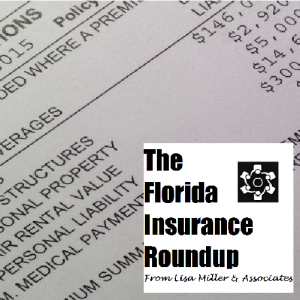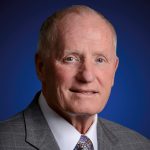Fewer lawsuits, lower rates
Right after the December special session, I sat down with three insurance industry veterans, including Citizens’ Barry Gilway, to discuss their take on Florida’s big property insurance market reforms and their expectations of its impact. The reforms are designed to stem high insurance and reinsurance rates, carrier insolvencies, inflated claims, excessive litigation, and an overly-competitive residual market in Citizens. We recorded our conversation as the latest episode of The Florida Insurance Roundup podcast.
Gilway, the outgoing President, CEO, and Executive Director of Citizens, emphasized that the “litigation rate is going to drop like a rock,” with the elimination of the state’s one-way attorney fee statute. “From a Citizens Insurance standpoint, our average litigation payment is $77,000 and the attorney fee associated with that payment is $39,000. I’m paying more than 1,000 attorneys to defend the 20,000 outstanding lawsuits we have, brought because there’s an automatic payment under the one-way statute,” he said. The new law “is going to make a profound change in whether an attorney brings a suit or not,” combined with its elimination of Assignment of Benefits (AOB) agreements, he added.
“This is going to unlock the opportunity for rates to be able to come down over time,” said Andy McGuire, Co-CEO of PEAK6 InsurTech, which includes the Team Focus Insurance Group and WeInsure, representing 100,000 policyholders. McGuire said the requirement for faster claims handling by carriers is going to increase costs, something he’s okay with. “I’m actually hopeful that these regulations combined with the elimination of AOBs and one-way attorney fees, that we can actually create a better consumer experience through insurance, and get away from what’s been an almost adversarial claim experience and at the point of sale or at the point of claim create a much better customer experience,” said McGuire, who started his career 27 years ago working insurance claims.
Adam Schwebach, Executive Vice President of reinsurance broker Gallagher Re, said that although the reinsurance market views it as a “tremendous” bill, “there needs to be a period right now of kind of proving out the results of this legislation before reinsurers really get on board.” Past reforms haven’t shown results in the inflated hurricane claims from Florida’s primary insurance companies still being passed along to reinsurance companies to pay. “Will reinsurance prices come down immediately? I don’t think so. Will reinsurers be more willing to commit capacity to the Florida market? I think there’s a strong possibility,” said Schwebach, a reinsurance broker for almost 20 years. He said there are also reservations on how effective the law’s newly created Florida Optional Reinsurance Assistance Program will be in helping carriers that cannot find affordable reinsurance in the private market. He said reducing the claim filing deadline from three years to one year will certainly help reduce illegitimate claims and litigation, too.
All three guests agreed that the law’s changes prohibiting Citizens from being competitive with private market carriers will help return it to being the carrier of last resort, as it was intended, and that it will only be a matter of time before more investors come back into the private market, leading to more competition and lower prices. Barry Gilway’s insights from the podcast were referenced in stories by Artemis, News Service of Florida, and the Miami Herald. You can read more – and better yet, listen to the full podcast here.
LMA Newsletter of 1-9-23





